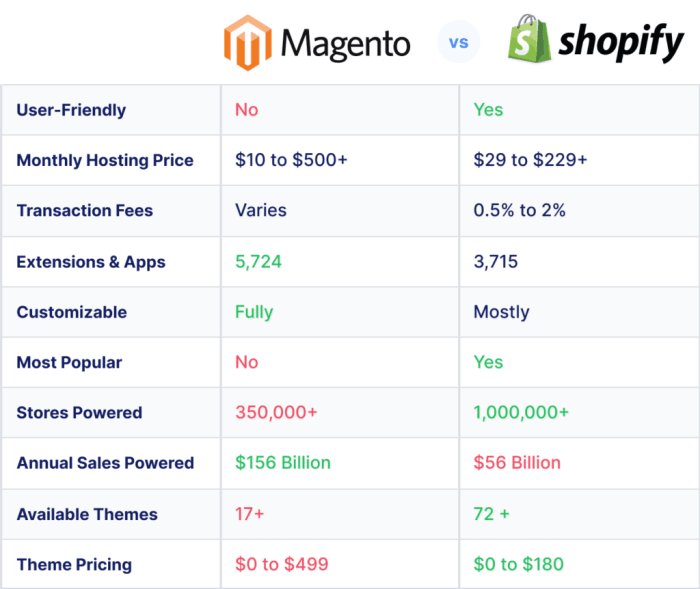How Legal Content Marketing Drives Leads: A Comprehensive Guide
Delving into the realm of legal content marketing and its impact on lead generation, this guide aims to explore the strategies and tactics that can elevate your law firm's online presence.
As we navigate through the nuances of legal content marketing, we uncover the essentials needed to stand out in a competitive landscape and attract potential clients effectively.
Importance of Legal Content Marketing
Legal content marketing plays a crucial role in the legal industry by providing valuable information to potential clients, establishing expertise, and driving leads. Here's why legal content marketing is essential:
Difference from Traditional Marketing
Legal content marketing differs from traditional marketing in the legal industry by focusing on creating informative and educational content rather than direct advertisements. This approach helps law firms build trust with their audience and position themselves as authoritative sources in their respective fields.
Examples of Successful Campaigns
- The American Bar Association's blog, which provides insightful articles on various legal topics, has helped the organization reach a wider audience and attract new members.
- Law firm blogs that offer practical legal advice and case studies have been successful in driving traffic to their websites and converting visitors into clients.
Establishing Thought Leadership
Content marketing plays a crucial role in establishing thought leadership in the legal field by showcasing a firm's expertise, experience, and knowledge. By consistently producing high-quality content that addresses common legal issues, law firms can position themselves as industry leaders and attract clients looking for trustworthy legal guidance.
Strategies for Creating Legal Content

Creating effective legal content requires a well-thought-out strategy that resonates with both legal professionals and potential clients. Let's delve into the steps involved in developing a content marketing strategy for a law firm, tips on identifying target audiences, and the types of content that work best in the legal industry.
Developing a Content Marketing Strategy for a Law Firm
- Define your goals: Start by outlining what you want to achieve with your content marketing efforts. Whether it's increasing brand awareness, generating leads, or showcasing expertise, clear goals will guide your strategy.
- Know your audience: Understand the demographics, interests, and pain points of your target audience. This will help tailor your content to resonate with them effectively.
- Research s: Conduct research to identify topics that are relevant to your audience and have search volume. Use these s strategically in your content to improve visibility.
- Create a content calendar: Plan your content in advance to ensure consistency and relevance. Consider different types of content such as blog posts, videos, infographics, and case studies.
- Promote your content: Utilize social media, email marketing, and to promote your content and reach a wider audience. Engage with your audience through comments and shares to build relationships.
Identifying Target Audiences for Legal Content Marketing
- Conduct market research: Analyze your current client base and competitors to identify potential target audiences. Understand their needs, preferences, and pain points.
- Create buyer personas: Develop detailed profiles of your ideal clients, including demographics, behavior patterns, and motivations. Tailor your content to address their specific needs and challenges.
- Use analytics: Monitor the performance of your content using analytics tools to track audience engagement, conversion rates, and other key metrics. Adjust your strategy based on insights gained.
Types of Content that Resonate Best with Legal Professionals and Potential Clients
- Informative blog posts: Share insights on legal trends, case studies, and industry news to establish expertise and credibility.
- Educational videos: Create engaging videos explaining complex legal concepts, offering tips, or showcasing client testimonials.
- Case studies: Highlight successful cases or client outcomes to demonstrate your expertise and track record.
- Infographics: Present data and information visually to make complex legal topics more digestible and shareable.
- Webinars and podcasts: Host interactive webinars or podcasts to engage with your audience, answer questions, and provide valuable insights.
Generating Leads through Legal Content Marketing
Legal content marketing plays a crucial role in lead generation for law firms by attracting potential clients, establishing credibility, and showcasing expertise in specific legal areas. Through informative articles, blog posts, videos, and social media content, law firms can engage with their target audience and drive them towards taking action.
Successful Lead Generation Tactics in the Legal Industry
- Offering downloadable resources such as e-books, whitepapers, or guides in exchange for contact information.
- Hosting webinars or virtual events on relevant legal topics to capture leads and provide valuable insights.
- Creating interactive tools like legal calculators or quizzes that require users to input their contact details to access results.
- Utilizing email marketing campaigns to nurture leads and provide them with tailored content based on their interests.
The Importance of Call-to-Actions in Legal Content
Call-to-actions (CTAs) are essential elements in legal content marketing as they guide potential clients on the next steps to take after consuming the content. CTAs can prompt visitors to schedule a consultation, download a resource, subscribe to a newsletter, or contact the firm for more information.
By strategically placing CTAs throughout the content, law firms can increase lead conversion rates and drive engagement with their target audience.
Measuring Success in Legal Content Marketing

Measuring the success of legal content marketing is crucial to understand the impact of your efforts and make informed decisions for future strategies. Key performance indicators (KPIs) play a vital role in evaluating the effectiveness of your content marketing campaigns.
Key Performance Indicators for Legal Content Marketing
When it comes to measuring success in legal content marketing, certain key performance indicators can provide valuable insights into the performance of your campaigns:
- Website Traffic: Monitoring the number of visitors to your website can indicate the reach and engagement levels of your content.
- Conversion Rates: Tracking the percentage of visitors who take the desired action, such as filling out a contact form or downloading a resource, can help evaluate the effectiveness of your content in driving conversions.
- Performance: Analyzing the rankings of your content on search engine results pages (SERPs) and the organic traffic generated can give insights into the visibility and relevance of your content.
- Social Media Engagement: Assessing the likes, shares, comments, and overall engagement on social media platforms can indicate the resonance of your content with your target audience.
Tracking Leads Generated through Content Marketing
Tracking leads generated through content marketing efforts requires the use of tools and techniques that can help capture and analyze relevant data:
- Marketing Automation Platforms: Utilizing platforms like HubSpot, Marketo, or Pardot can help track leads generated through content and automate follow-up processes.
- Google Analytics: Leveraging Google Analytics can provide valuable insights into the performance of your content, including lead generation metrics and user behavior on your website.
- CRM Systems: Integrating customer relationship management (CRM) systems like Salesforce or Zoho CRM can help track leads from initial contact to conversion, providing a holistic view of the customer journey.
Importance of Analytics in Optimizing Legal Content Marketing Strategies
Analytics play a crucial role in optimizing legal content marketing strategies by providing data-driven insights that can inform decision-making and enhance the effectiveness of your campaigns:
- Identifying High-Performing Content: Analyzing metrics such as page views, time on page, and conversion rates can help identify top-performing content that resonates with your audience.
- Understanding Audience Behavior: Analyzing user behavior metrics can provide insights into how your audience interacts with your content, allowing you to tailor future content to meet their needs and preferences.
- ROI Measurement: Tracking the return on investment (ROI) of your content marketing efforts can help justify budget allocations and optimize resource allocation for maximum impact.
Conclusion

In conclusion, understanding how legal content marketing drives leads is crucial for law firms looking to expand their clientele and establish a strong digital footprint. By implementing the right strategies and measuring success through key performance indicators, your firm can pave the way for sustainable growth and increased lead conversions.
Essential Questionnaire
How can legal content marketing benefit a law firm?
Legal content marketing can position a law firm as an authority in the industry, attract potential clients, and ultimately drive lead generation through valuable and informative content.
What types of content resonate best with legal professionals?
Legal professionals tend to engage more with in-depth articles, case studies, whitepapers, and expert analyses that showcase industry expertise and insights.
Why are call-to-actions important in legal content marketing?
Call-to-actions prompt website visitors to take specific actions, such as contacting the law firm for a consultation, which can lead to increased lead conversions and client acquisition.




